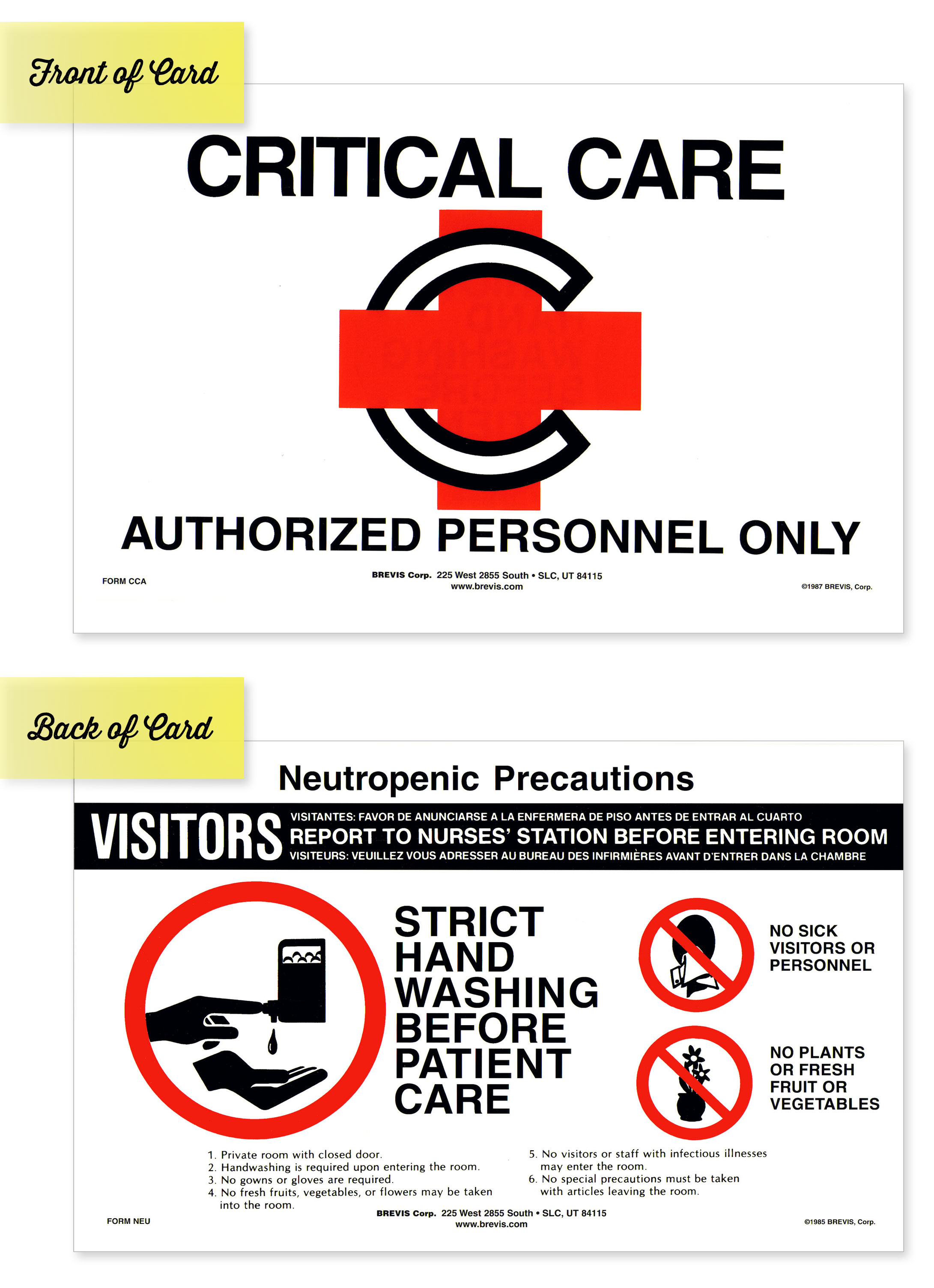It aims to reduce the risk of infection in people with neutropenia (low number of white blood cells) who are receiving anticancer treatment. Wash your hands before entering and before leaving your room. The risk of clinically important infection rises as the neutrophil count falls below 500 cells/microl and is higher in those with a prolonged. Visitors check with nursing for mask instructions. Use dedicated or disposable equipment.
Visitors check with nursing for mask instructions. Enteric precautions / revised sign. The risk of clinically important infection rises as the neutrophil count falls below 500 cells/microl and is higher in those with a prolonged. Web neutropenic precautions avoid crowds, and people with infections avoid fresh/raw fruits and veggies no fresh flowers or plants avoid ice and stagnant water no pepper on meal trays serve meal trays promptly do frequent oral care, qid and prn wash hands frequently!!!!
A fever of 100.4 °f (38.0 °c) or higher, is usually the first sign of an infection. Web contact precautions / revised sign. Temperature of 38°c or greater and neutrophil count of less than 0.5 x 109 cells/l, or less than 1.0 x 109 cells/l and predicted to fall to lower than 0.5 x 109 cells/l.
Neutropenic precautions / * new sign. Web you should carefully watch for signs and symptoms of infection during this time. Web this guideline covers preventing, identifying and managing neutropenic sepsis in children, young people and adults receiving treatment for cancer in the community and in secondary and tertiary care. It’s seen in some cancers and diseases but is also a common side effect of cancer treatment. The guideline committee came to this conclusion after examining over 200 randomised controlled trials of primary prophylaxis, basing their decision on clinical evidence that fluoroquinolones are more.
How can i prevent neutropenia? Droplet precautions / revised sign. A fever of 100.4 °f (38.0 °c) or higher, is usually the first sign of an infection.
Patients Receiving Cancer Treatments May Experience A Decrease In The Number Of White Blood Cells (Neutrophils) That Are Responsible For Fighting Infection.
Special droplet contact precautions / * new sign. Put on gown before room entry. Web reasons for the decision. A fever of 100.4 °f (38.0 °c) or higher, is usually the first sign of an infection.
The Risk Of Clinically Important Infection Rises As The Neutrophil Count Falls Below 500 Cells/Microl And Is Higher In Those With A Prolonged.
When you have neutropenia, there are things you can do to prevent infection. • recognise and acknowledge if you are feeling unwell • take your temperature if you feel unwell Neutropenia is a blood condition involving low. Web this guideline covers preventing, identifying and managing neutropenic sepsis in children, young people and adults receiving treatment for cancer in the community and in secondary and tertiary care.
These Safety Measures Are Called Neutropenic Precautions.
Web when you have neutropenia, you have a higher risk of getting an infection. Clean and disinfect reusable equipment before use on another person. It aims to reduce the risk of infection in people with neutropenia (low number of white blood cells) who are receiving anticancer treatment. They cause infection when they touch your nose or mouth droplets travel 3 feet out from the patient and contaminate items within this 3 foot 's
Wash Your Hands Before Entering And Before Leaving Your Room.
Do not wear the same gown and gloves for the care of more than one person. Enteric precautions / revised sign. Web the best way to treat neutropenic sepsis is to recognise the signs and symptoms early and to ensure that appropriate antibiotics are given within 60 minutes of arriving at the hospital. Neutropenia is a condition that puts people at increased risk for dangerous bacterial infections.
Web for patients with neutropenia, an infection can become serious quickly. Droplet contact precautions / * new sign enhanced barrier precautions (ltcfs) *new sign. Special droplet contact precautions / * new sign. Droplet precautions / revised sign. The nice guideline on neutropenic sepsis recommends offering fluoroquinolones for primary prophylaxis.






